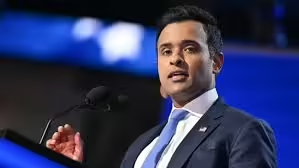
By Michael Specter
In a significant move aimed at protecting children online, Australia’s House of Representatives has passed a bill that would prevent children under the age of 16 from accessing social media platforms. The bill, which has garnered support from major political parties, is now awaiting final approval from the Senate, potentially setting a global precedent for digital child safety.
Fines for Platforms That Fail to Enforce Age Restrictions
Under the new legislation, platforms like TikTok, Facebook, Instagram, X, Snapchat, and Reddit could face substantial fines of up to 50 million Australian dollars (approximately USD 33 million) if they fail to prevent children under 16 from using their services. The bill passed with overwhelming support, securing 102 votes in favor and just 13 votes against.
Should the bill become law this week, social media platforms will have one year to implement age verification measures before facing penalties. This gives companies time to put in place the necessary systems to comply with the new rules.
Privacy Protections and Amendments
The bill has sparked debates regarding privacy and implementation. Opposition lawmaker Dan Tehan acknowledged concerns over privacy and emphasized that amendments would be made in the Senate to address these issues. Notably, platforms will be prohibited from requiring government-issued identity documents such as passports or driver’s licenses for age verification. The platforms will also not be allowed to use government systems for digital identification, providing some reassurance for privacy advocates.

Tehan commented on the bill’s potential impact, saying, “Will it be perfect? No. But is any law perfect? No, it’s not. But if it helps, even if it helps in just the smallest of ways, it will make a huge difference to people’s lives.”
Criticisms and Concerns
While the bill has gained support, it has also faced criticism from some lawmakers and experts. Independent lawmaker Zoe Daniel argued that the bill, while well-intentioned, would likely have little impact on the harms associated with social media. She suggested that the true aim of the legislation was to give the appearance of action rather than addressing the root causes of online harm. Daniel added that no other country had chosen to pursue similar legislation, underscoring the lack of international support for such a ban.
Critics also warned that the bill could inadvertently create privacy risks for users of all ages, reduce parents’ ability to make informed decisions about their children’s social media use, and potentially isolate children by cutting them off from the positive aspects of social media. Some also feared it could push younger users toward unregulated platforms on the dark web.
Support for the Bill
Despite the criticisms, many parents and advocates for child safety online have praised the bill. Wayne Holdsworth, whose 17-year-old son tragically took his own life after being targeted in an online sextortion scam, called the bill “absolutely essential for the safety of our children.” Holdsworth emphasized that while the bill is not a complete solution, it is an important step toward protecting children and supporting parents in managing their children’s online presence.
He added, “It’s not the only thing that we need to do to protect them because education is the key, but to provide some immediate support for our children and parents to be able to manage this, it’s a great step.”
Global Implications
If the bill passes the Senate, Australia will become the first country to implement a nationwide ban on social media use for children under 16. The legislation could set a precedent for other nations grappling with the challenges of child safety on digital platforms.
With major parties supporting the bill, its passage in the Senate seems likely, although the debate surrounding its effectiveness and potential privacy concerns will continue to dominate discussions.


